What's your working genius?
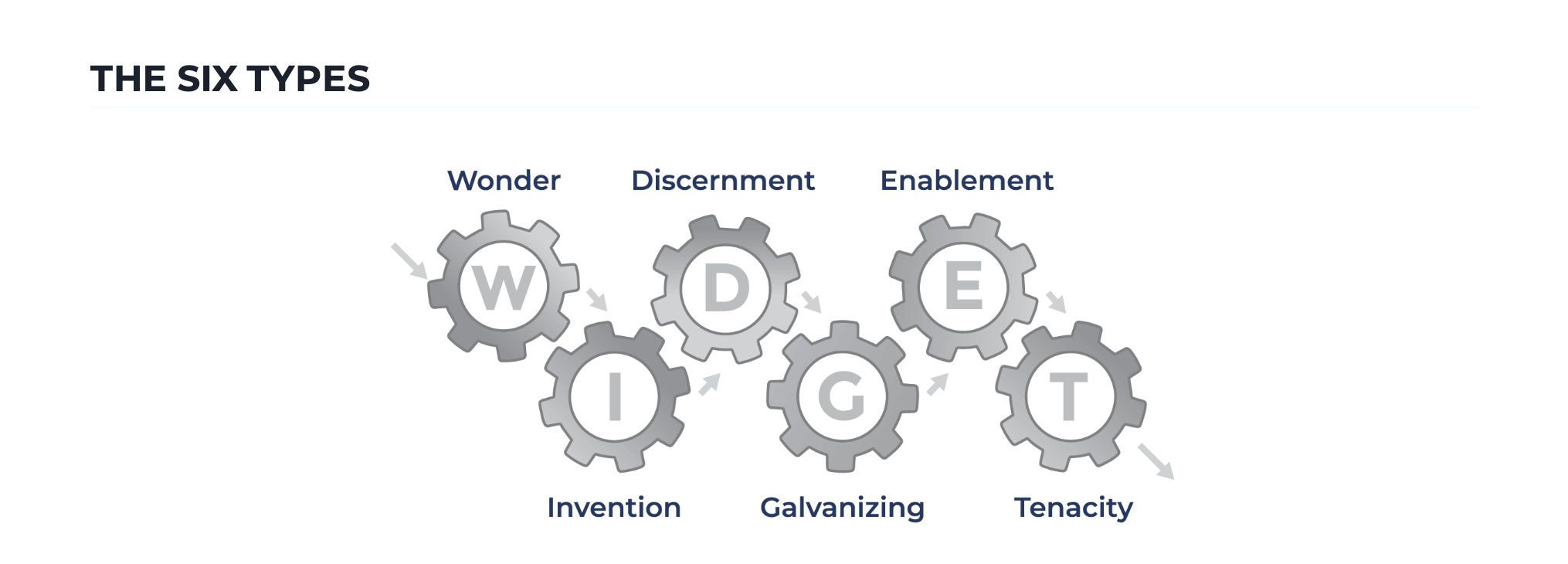
In my journey as an IC (Individual Contributor), Lead and Manager, alike, I have learned that self-awareness is critical for fulfilment and success.
Question
If your work and/or life is going on well. That's awesome. Do you know why?!
The WHY for me came at a point when things weren't too great and I was in pursuit of answers to the questions:
- "Why was work better 3 months ago?"
- "I'm trying to manage up, but it's not working!"
- Why am I excited to do some work which doesn't affect the bottom line yet I dread working on what's Urgent and Important?
- "Is it me or my team?" Both as the lead (those under a manager or leader) or the lead (the manager or leader).
My pursuit lead me to two resources:
- The 4 animals personality test championed by Dr. John Trent. I'll have a post about this soon.
- The 6 types of Working Geniuses championed by Patrick Lencioni
About the latter, there's a book, podcast and an assessment for it. Though I haven't read the book, I've read extensively on this and adjacent topics and I share my titbits (collected through interviews of the author and other resources) about the model below.
Turns out, the author's inspiration to work on the model stemmed from similar questions as I had above.
Before you proceed, here's a succinct PDF (119KB) on the model.
Also here are a few quick videos (~2 minute each)
- There's value in improving your work-life
- The answer is not less work
- Working Genius Model overview
- Problem with not Knowing Your Working Genius
- What if you were given a gift?
- Before you take an assessment
The 6 types of Working Geniuses
The model aims to help people discover their natural gifts and thrive in their work and life.
In summary the six types are Wonder, Invention, Discernment, Galvanizing, Enablement and Tenacity.
The videos and other resources below explain it better 😃
In summary: WIDGET
Below is a list of working geniuses, what the person gifted with that genius does, and what they crave and what crushes them.
- Wonder: identifies the need for improvement or change
Motto: Let's think about it. - Invention: confirms the importance of that need, and generates an idea or solution
Motto: Let's figure it out. - Discernment: assesses the merit and workability of the idea or solution
Motto: Let's do this, or let's not do this. - Galvanizing: generates enthusiasm and action around the idea or solution
Motto: Let's move forward. - Enablement: initiates support and assists in the implementation of the idea or solution
Motto: Let me help you get things done. - Tenacity: commits to ensuring that the idea or solution gets completed and that results are achieved
Motto: Let's complete this project.
The first letters of each spell WIDGET. I'll refer to the letters later in this post.
Three stages of work
Beyond these being classifications of areas of work that diverse people thrive in; it is a framework of how work in of itself gets done. Starting from Wonder - Asking what if to Tenacity - Landing the plane - Achieving results, in three steps.
The first two are useful during Ideation (coming up with ideas), the next two are useful in Activation of these ideas (bringing people and things together and making judgement calls in choosing them), and last but not least, the last two are about Implementation of the ideas (crossing the finish line)!
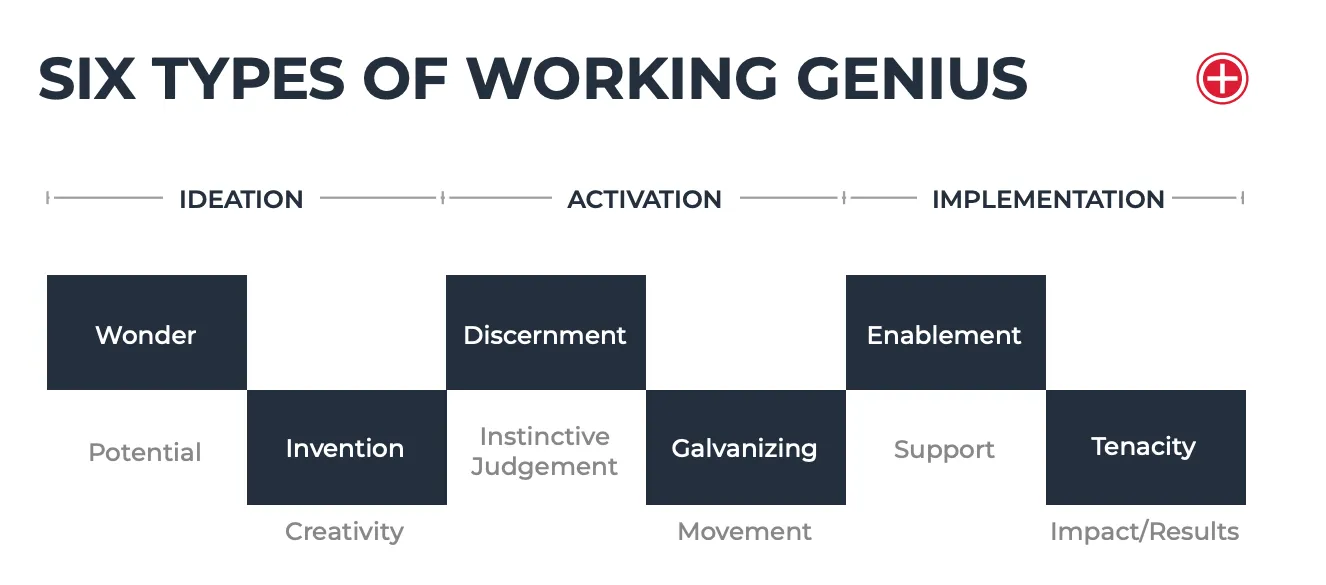
Two demarkations: Responsive and Disruptive geniuses
There are responsive and disruptive geniuses.
The first respond to eternal stimulus (W, D & E). By contrast, the disruptive geniuses generally initiate or provoke change when they see a need (I, G & T)
So what's yours?
The six geniuses above are broken into three main categories, each with two of them.
- Working Genius - your top two
- Working Competency - your mid two
- Working Frustration - your low two
Since work takes the progression of WIDGET (From Wonder to Tenacity), then the 6 geniuses are all needed to complete a project. The model proposes that an individual can complete a certain project by themselves. However, they might gloss over the stages that aren't their strength.
Example
If you do an assessment, it'll cost you $25 (per license),
You can also self-analyse, if you don't have $25 to spare. (I've shared a few resources at the end of this post). The assessment asks you 40-ish questions and takes 10-ish minutes. Remember these are subjective and we humans vary in our mental plasticity hence the self-analysis and an assessment might differ (at least for me it did - what I thought were my top 3 in my own analysis were consistent with the assessment but the order differed)
you end up with results like these:
Working Genius:
The type that you're naturally gifted at, passionate about, and derive energy and joy from doing.
- W - Wonder
- I - Invention
Working Competency:
The type that you're capable of and don’t mind doing.
- E - Enablement
- G - Galvanizing
Working Frustration:
The type that you're NOT naturally gifted at, are NOT passionate about, and DON'T derive energy and joy from doing.
- D - Discernment
- T - Tenacity
Understanding the results
Most often, you become skilled at your working geniuses. Work and life are amazing if you tend to do work in your Working Geniuses.
You can be successful too if your work and life offer you opportunities to express your Working competency. If your day-to-day is filled with Working Competency types, you can operate for a while but since they neither give you joy or make you miserable completely, you might get burn-out or get exasperated.
It becomes a struggle, however, if your Working Frustrations are your day-to-day. The repercussions tend to be:
- Misery at work
- Quitting
- Disgruntled career change
- Distractions
- Procrastination
I've been there!
It's very important that you don't feel unnecessarily shameful or guilty for not being naturally gifted in these areas.
Also, it might be natural to feel envious of others who have strengths in areas of your frustrations, don't be. In fact, these might be the best team mates for you.
You need to create the opportunity to exercise your true geniuses. Career change or shifting teams, when inspired by your pursuit to getting an environment where your Working geniuses are valuable and appreciated is worth it!
Genius pairings
Back to our example, then, the individual with their results as WIGEDT (in the order of: Geniuses, Competencies and Frustrations) is called The Creative Dreamer due to the WI genius pairing.
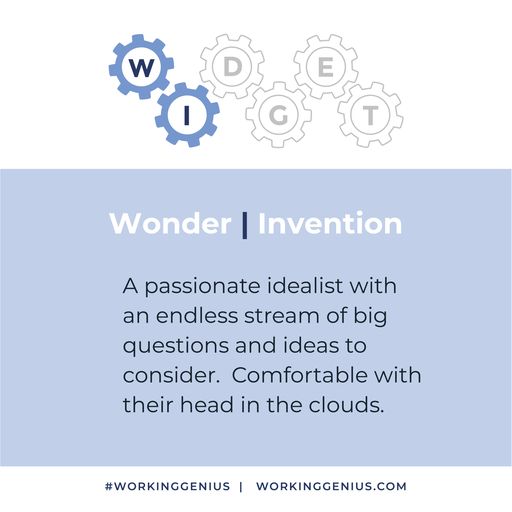
They are a passionate idealist with an endless stream of big questions and ideas to consider. They are comfortable with their head in the clouds.
All pairings have their rough edges; like this individual might not get projects done by themselves. They also tend to lean on idealism more often that on realism and sometimes needs to get reminded that a project is past the wonder stage, factor in the realism and get things done!
Based on the progression of work, this individual is better placed in the Ideation stage of a project.
This is how I would advise them to seek work. Find a place/ environment that:
- values idealism
- appreciates the setting of standards
- considers your ideas and allows for research
- allows for mobility/ freedom - for your creativity to shine
Some examples for this:
- Startups
- Greenfield projects
- Focus groups setting standards
- In software, project creators (open source projects particularly since they advocate for standards that other engineers build upon)
Beyond the assessment
In my consideration, I've figured out that your top three geniuses give you the best place to start allowing you to work in an environment with your geniuses and the top competency.
Sometimes, we don't have the luxury to get the top two, right? Career or life circumstances can come in the way.
Craves/ Crushed by
Consider using the Craves/ Crushed by approach to fine-tune your self-analysis.
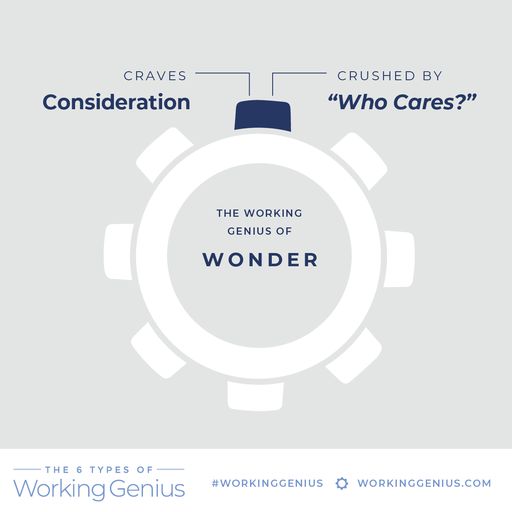

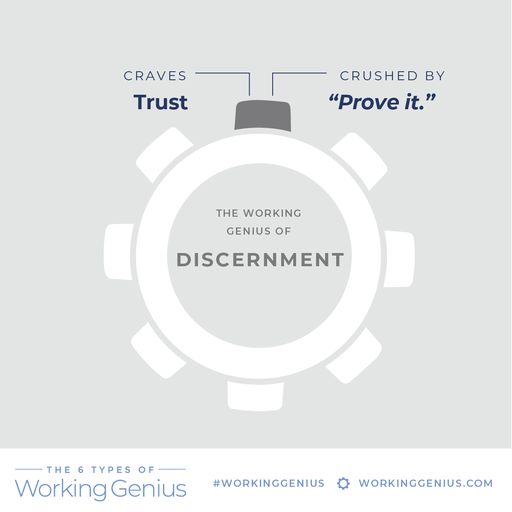
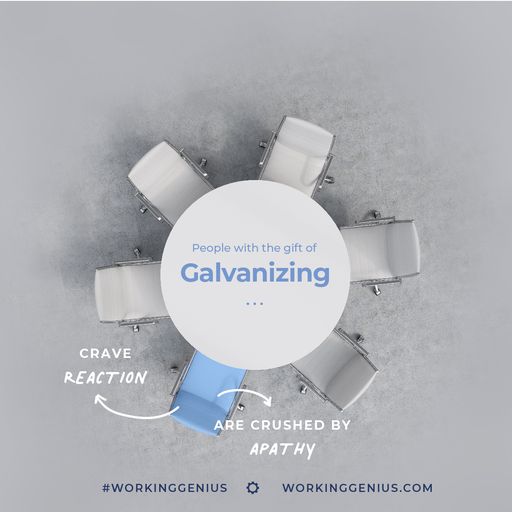

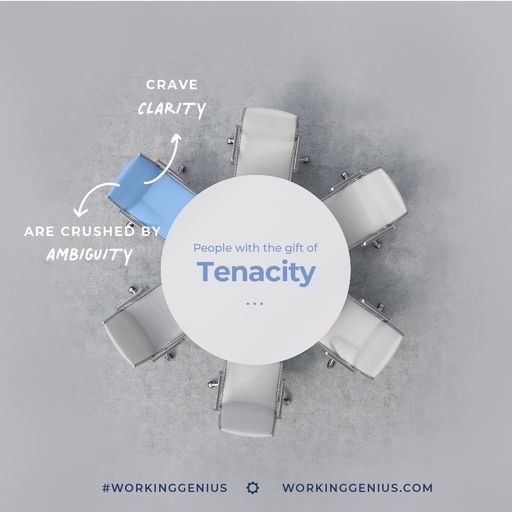
More resources
- The three stages of work
- An in-depth session
- A written summary
- A certified coach breaks it down here
Other resources from the site including:
- A Team Map Template (Useful when building a team for success by incorporating team mates strengths, and complementing them with others on their frustrations)
Consider these issues if a team lacks a particular genius: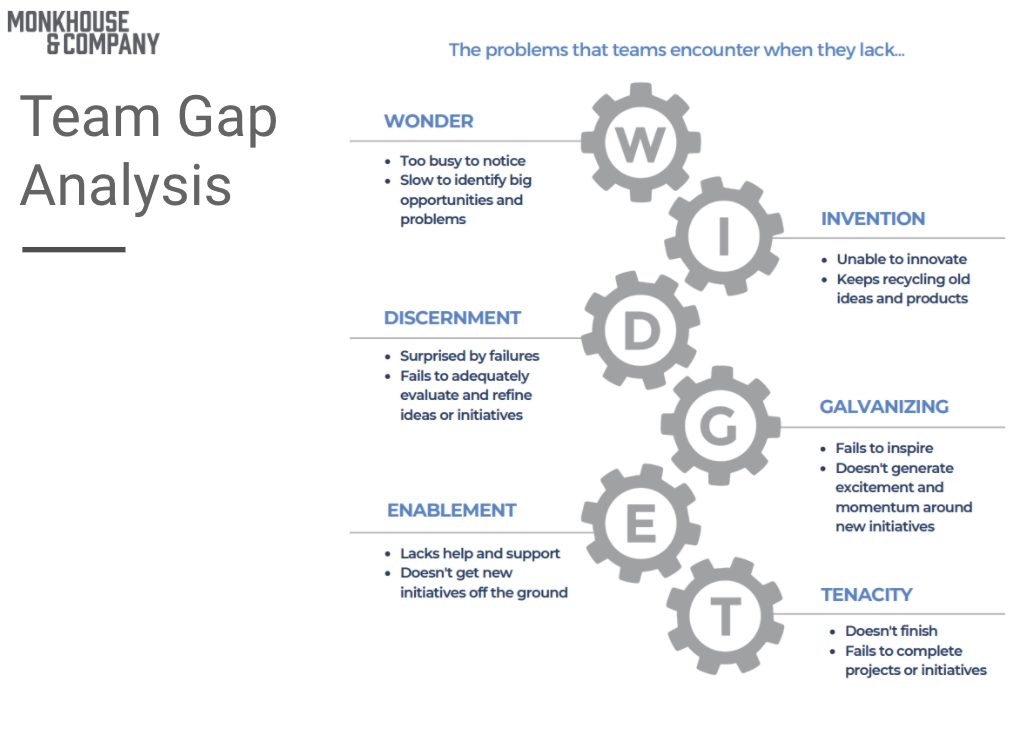
- Start with yourself tool
- Incorporating this model in Marriage - Marriage is a Lot of Work blog post.
- A folder with free graphics for learning and sharing.
In there, you'll find the graphics used in Craves/ Crushed by.
Conclusion
Overall, I'll echo the words of a certified work coach. This model gave me language and understanding to frame my own work experiences. The Six Types of Working Genius may be the simplest & fastest way to changing how you lead yourself and your team towards:
- less frustration & greater joy
- less wasted time & more collaboration
- less 'meeting stew' & much needed clarity
It's not a quick fix but can lead to some immediate insight and quick adjustments.
Reference
